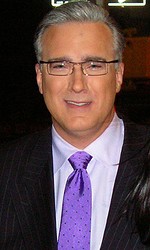A Quote by John C. Calhoun
Property is in its nature timid and seeks protection, and nothing is more gratifying to government than to become a protector.
Quote Topics
Related Quotes
In the nature of things, those who have no property and see their neighbors possess much more than they think them to need, cannot be favorable to laws made for the protection of property. When this class becomes numerous, it becomes clamorous. It looks on property as its prey and plunder, and is naturally ready, at times, for violence and revolution.
Nothing is more human than for man to desire naturally things impossible to his nature. It is, indeed, the property of a nature which is not closed up in matter like the nature of physical things, but which is intellectual or infinitized by the spirit. It is the property of a metaphysical nature. Such desires reach for the infinite, because the intellect thirsts for being and being is infinite.
When people become frightened, they look for things of real value. They will go to monetary metals, gold and silver, and they will buy other things, such as buying property. But no matter what we have, whether we have our gold coins or we have our property, if we have an authoritarian government, that is our greatest threat. So, I would like to think that there is no perfect protection, other than shrinking the size and scope and power of government, so that we can be left alone and take care of ourselves.
The diversity in the faculties of men, from which the rights of property originate, is not less an insuperable obstacle to a uniformity of interests. The protection of these faculties is the first object of government. From the protection of different and unequal faculties of acquiring property, the possession of different degrees and kinds of property immediately results; and from the influence of these on the sentiments and views of the respective proprietors, ensues a division of the society into different interests and parties.
There is something that governments care for more than human life, and that is the security of property, and so it is through property that we shall strike the enemy.... Those of you who can break windows--break them. Those of you who can still further attack the secret idol of property, so as to make the Government realize that property is as greatly endangered by women's suffrage as it was by the Chartists of old--do so. And my last word is to the Government: I incite this meeting to rebellion!
The millions of laws which exist for the regulation of humanity appear upon investigation to be divided into three principal categories: protection of property, protection of persons, protection of government. And by analyzing each of these three categories, we arrive at the same logical and necessary conclusion: the uselessness and hurtfulness of law.
What, on the eternal list of priorities, precedes health? What more obvious role could government have than the defense of the life, of each citizen? We cannot stop every germ that seeks to harm us any more than we can stop every person who seeks to harm us. But we can try dammit and government's essential role in that effort facilitate it, reduce its cost, broaden its availability, improve my health and yours, seems, ultimately, self-explanatory.
Why is it Muslims from Pakistan or from Egypt come to America and thrive, and they are frustrated back home? It's about clean government. It's about a rule of law. It's about intellectual property protection. They've got all the talent and energy of anybody else. As new immigrants they may have more of it, so you put them in our system and they become doctors, lawyers, and businessmen and entrepreneurs.
Conscience is the most sacred of all property; other property depending in part on positive law, the exercise of that being a natural and unalienable right. To guard a man's house as his castle, to pay public and enforce private debts with the most exact faith, can give no title to invade a man's conscience, which is more sacred than his castle, or to withhold from it that debt of protection for which the public faith is pledged by the very nature and original conditions of the social pact.










































